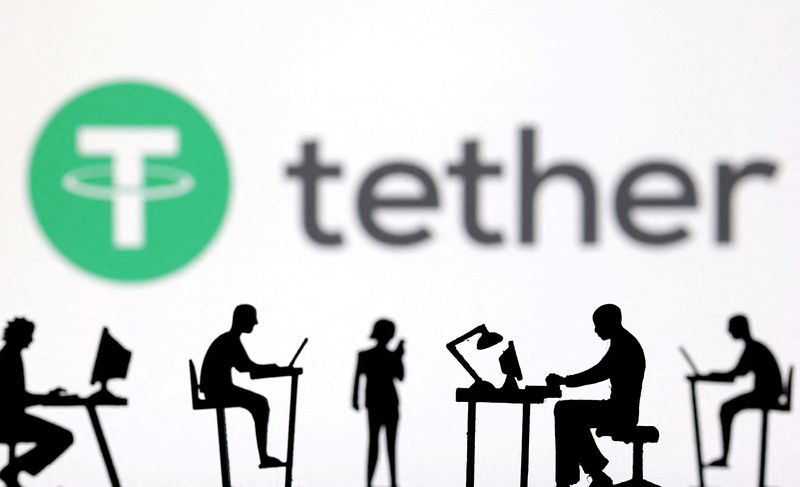
Elizabeth Howcroft
LONDON (Reuters) – The world’s largest stablecoin has stepped up monitoring of how its tokens are used in wider cryptocurrency markets and in payments in a bid to crack down on illicit finance, Tether said in a statement on Thursday.
Tether, a U.S. dollar-pegged cryptocurrency, and blockchain analytics company Chainaanalysis have launched new tools to identify transactions related to sanctioned entities and analyze the activities of the token’s main holders, Tether said.
Last month, Reuters reported that Venezuela’s state oil company PDVSA plans to increase the use of Tether in oil and fuel exports at a time when the US reimposed oil sanctions.
Last month, the Wall Street Journal reported that Russian middlemen were using Tether to circumvent Western sanctions and purchase weapons parts for drones and other military equipment.
A Tether spokesman did not immediately respond to a Reuters request for comment asking whether there was a connection between Thursday’s statement and the Reuters report on PDVSA. Tether’s statement did not mention either report.
Tether has previously said that every cryptocurrency activity happens online and is tracked, and “every asset is subject to confiscation and every criminal is subject to capture.”
Tether has grown rapidly in recent years, reaching $100 billion in sales in March. That growth has been driven by its use as an alternative to the dollar in emerging markets, Tether CEO Paolo Ardoino told Reuters last month.
Stablecoins can be used as a form of payment and can also be used to convert and convert other tokens such as Bitcoin when trading on crypto exchanges.
remove advertising
.
Tether, which is registered in Hong Kong and owned by a company registered in the British Virgin Islands, may freeze its tokens and has previously said it did so in response to requests from law enforcement.

